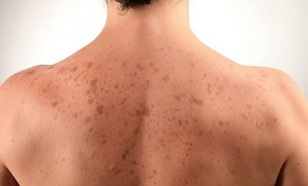With the modern development of medicine and many studies, scientists are unable to fully determine the true causes of the development of paid lichen. Pearl is a disorder of the skin and tissues around the joints. The disease is characterized by a non-infectious way with the appearance of papules and red spots that are prone to adhesions. These formations are dry, scaly, rising above the surface of the skin and represent a chronic, localized process. Microscopy reveals a large number of keratinocytes in the cells of the immune system (T-lymphocytes and macrophages) with a large increase in the vascular network.
Psoriasis and its causes are being actively investigated with this development of medicine, but no one has determined the ultimate cause of the appearance.
Scientists identify several main reasons for the development of pathology:
- Genetics- The hereditary theory of the appearance of psoriasis is based on the fact that if one or both parents have this pathology, the risk of developing it in subsequent generations is equal to 25%. With the development of the disease in both parents, the risk of developing it in the offspring increases to 70%. A healthy child can be born to a sick parent, but after a while the disease develops under the influence of the above factors.
- Immune Deficiency- Scientists studying the histological material of patients with psoriasis have found excessive accumulation of diseased immune cells in the epidermal layers. At the same time, specific antibodies were found in the surface layers of the epidermis - Munro microabscesses (accumulation of intercellular fluid, leukocytes, macrophages). A general blood test shows an increase in the number of leukocytes (T-helpers), all of which speak of the autoimmune nature of the disease.
- Viral lesion- in this case means infection with retroviruses. This strain inserts its tRNA chain into the host cell and replaces its genetic code with a viral one. It manifests itself in the overproduction and proliferation of immature and undifferentiated cells of the dermis.
An interesting fact is that according to the autoimmune theory, antipsoriatic treatment is aimed at reducing the number of immune cells, including T-helpers. When patients with HIV / AIDS have psoriasis, the number of these cells decreases to the threshold and the risk of developing psoriasis increases. Further investigation of this fact may completely refute the autoimmune theory of the development of psoriasis.
Factors of psoriasis development

What causes psoriasis? There are several triggers that negatively affect the body:
- Stress- this factor is a trigger for psoriasis eruptions and reduces the rash under its influence. This factor is one of the main factors, because the onset of psoriasis in 50% of cases occurs due to extreme fatigue, psychological trauma and nervous tension. With the onset of psoriasis remission, any mental shock can lead to relapse;
- Infections- a group of diseases with the development of which the initial foci of psoriatic rashes appear. These diseases include: all infectious diseases of the upper respiratory tract, bacterial and fungal infections affecting the skin, mononucleosis. Increased levels of pathogenic microflora (beta-hemolytic streptococcus and Staphylococcus aureus) have been identified in patients with psoriasis. Candidiasis is a fungal infectious process in which psoriasis is most commonly developed;
- External influences- a large number of patients associate the appearance of psoriasis as a result of external physical factors. Often these are: mechanical trauma to the skin, burns, hypothermia and frostbite;
- Endocrinopathies- this group of diseases is accompanied by poor functioning of the body as a whole. This factor is most common in women, with frequent changes in hormonal levels associated with growth, pregnancy, menstrual cycle, menopause. In patients with diabetes mellitus, the metabolism is significantly impaired, the constant excess of glucose adversely affects human tissues and organs, and leads to the development of other diseases;
- Toxins- is another cause of psoriasis in the body. The appearance is associated with food poisoning, work in factories or mills, the exploitation of certain products (citrus fruits, coffee, chocolate). Alcohol and smoking, with their toxic effects, cause many diseases, including psoriasis; Pathogenetic effectsinclude medication.A small number of patients have been shown to develop psoriasis while taking the following medications: NSAIDs, beta-blockers, fortified medications (vitamins C, B, D), cytostatics, and antibiotics (cephalosporins).
Prevention of psoriasis
Many factors contribute to the development of psoriasis. The basic theory has not yet been determined, and any preventive measures must be thoroughly, comprehensively targeted. Patients need to reconsider their lifestyles. If necessary, change your residence to a more environmentally friendly area.
It is recommended to avoid stressful situations. It is possible to take antidepressants and sedatives. The diet should include more fiber, non-allergic fruits and vegetables, meat and fish. When treating joint pathologies, it is important to give up bad habits, consult a doctor to replace the treatment. Take treatment courses in special sanatoriums.
























